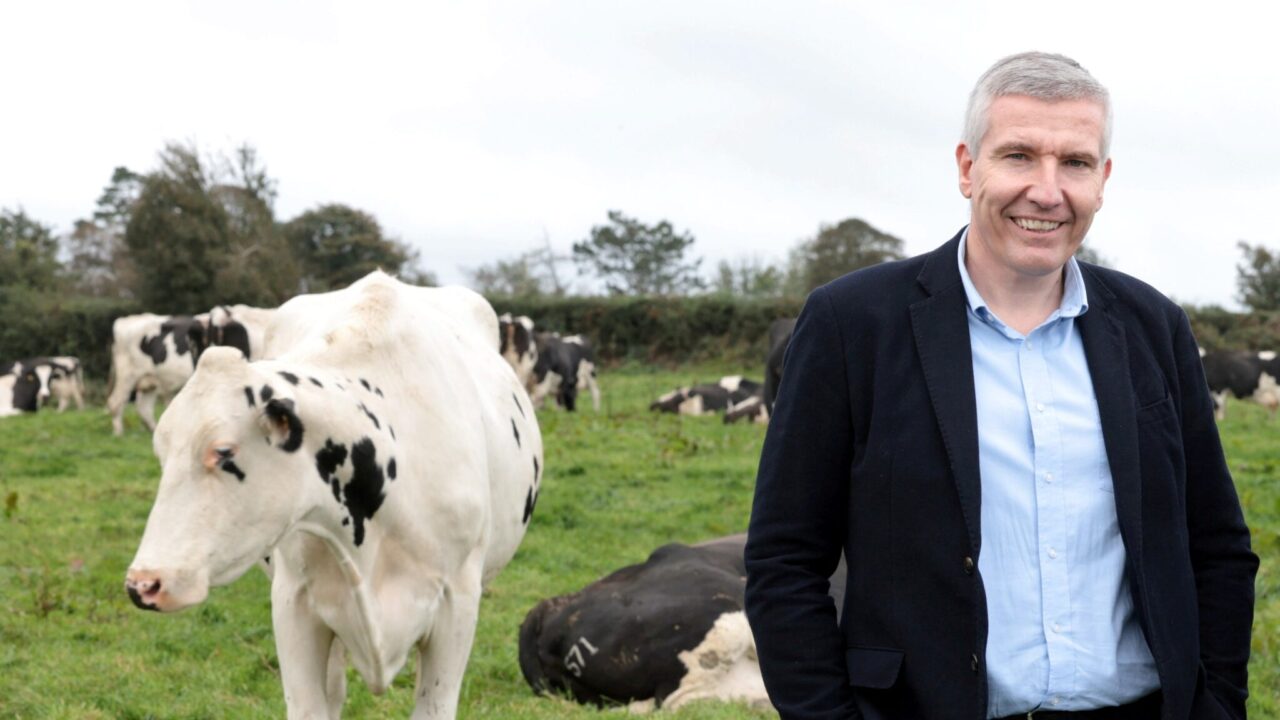A new technical bulletin by the International Dairy Federation (IDF) points strongly to global dairy demand exceeding milk output over the coming decade.
The assessment by the IDF in its World Dairy Situation (WDS) Report 2025 is that “given the available information, production growth is expected to lag behind the expansion of global consumption in the next 10 years. As a result, global dairy demand may not be fully met over the next decade”.
The report was released at the recent IDF World Dairy Summit, held in Santiago, Chile.
Ian Stevenson, chief executive of the Dairy Council for Northern Ireland (DCNI), attended the event.
He commented: “The summit attracted over 800 delegates, representing some 44 countries.
“Irish milk should take significant encouragement from the latest IDF assessment.”
Within any market scenario, prices will generally always strengthen when demand outstrips supply.
Irish dairy farmers have enjoyed the benefits of such a scenario over much of the last 12 months.
Ian Stevenson added: “And, yes, farm gate prices have started to ease back recently as production responded to favourable conditions.
“The reality is there will always be short- to medium-term impacts on global markets on a day-to-day basis.
“But the good news is that dairy can look forward to a future where it continues to play a central role in communities worldwide, generating livelihoods, fostering economic stability and delivering essential nutrients to billions.
“A combination of a continuing increase in the world’s population over the coming decades and a strengthening of dairy consumption rates on a per capita basis are driving this trend.”
World Dairy Summit
The summit’s overarching theme was ‘Nourishing a sustainable world’. There were over 90 technical sessions of expert presentations and panel discussions hosted over the four days of the event.
The proceedings gave those in attendance, who represented over 60% of the world’s total dairy output, an opportunity to discuss and express opinions on a range of core issues that will impact on the international milk sector during the period ahead.
The first day of the event was marked by a global dairy leaders’ panel.
A key participant in the panel discussions was New Zealand’s Minister of Food Safety, Biosecurity and Associate Minister of Agriculture, Andrew Hoggard.
Stevenson commented: “His reflections on the challenges that have faced his country’s milk sector over the past number of years were refreshingly powerful.
“He attributed the inability of the Kiwi milk sector to grow during this period to regulations that had been imposed at a national level.
“However, the New Zealand authorities have now scrapped the methane tax, which would have kicked-in this year.
“The plan now is to tackle the issue of sustainability by positively empowering farmers.”
Stevenson explained that water quality sits at the centre of the environmental challenges facing new Zealand’s agricultural industry.
“To tackle this, support will be given to individual farming businesses to help them deliver enhanced water quality while also addressing the issue at a river catchment level,” he said.
“This approach is designed to help New Zealand’s dairy sector to grow in a sustainable way.”

